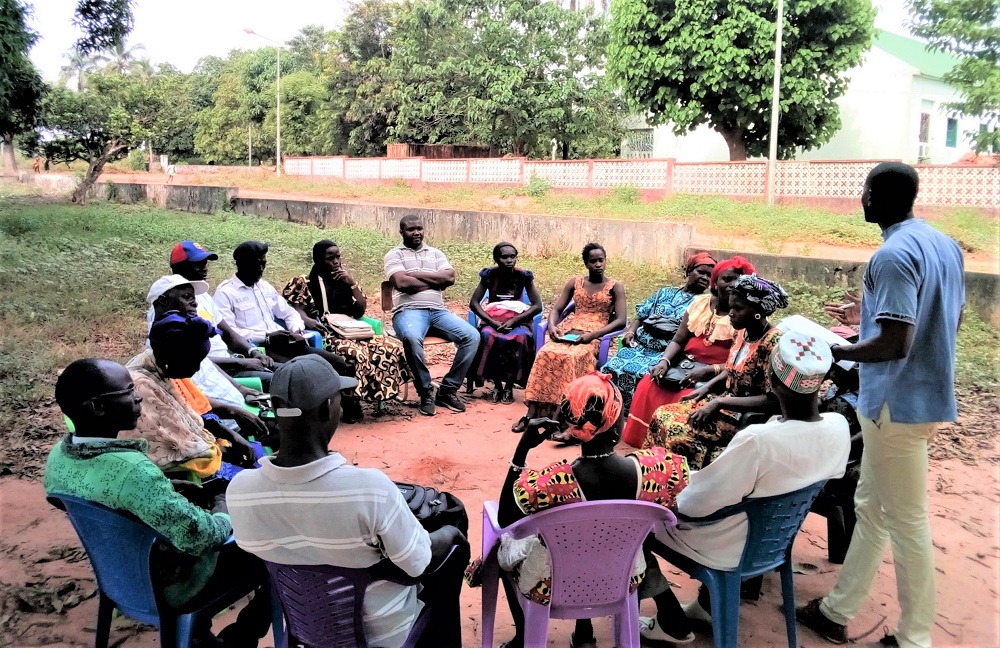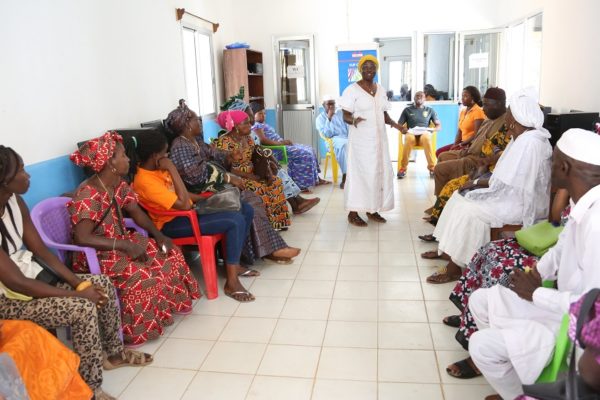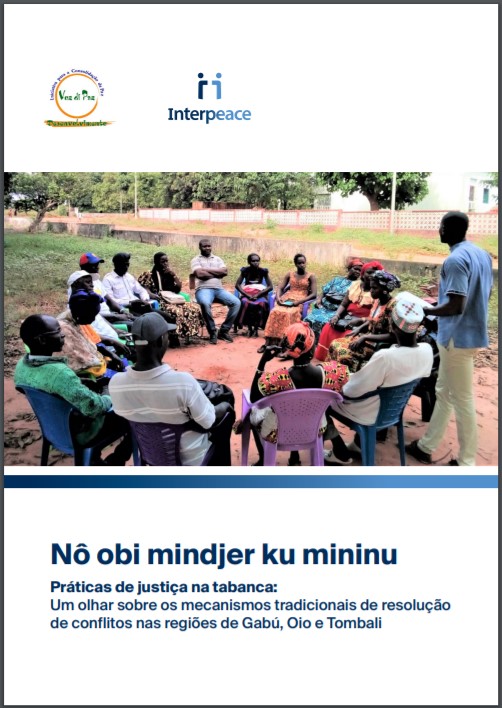Strengthening social cohesion in Guinea-Bissau – Addressing traditional mechanisms of conflict resolution

In many developing countries, traditional or informal justice systems are responsible for the resolution of over 80% of conflicts in a community. These conflict resolution mechanisms play a significant role in rural and urban areas worldwide, addressing matters ranging from local crime to protection of land and property, to issues concerning the resolution of family disputes and inheritance. As a result, these practices and traditions are deeply entrenched in local populations and pre-date formal justice systems. In most cases, these practices offer benefits in costs and physical accessibility. However, research has shown that these conflict resolution mechanisms disproportionately affect women and children.
In Guinea-Bissau, traditional conflict resolution mechanisms are deeply rooted in the costumes of the different communities of the country. In 2019, as part of a larger programme, UNDP et un UNICEF, funded by the Peacebuilding Fund, asked Interpeace and Voz di Paz to develop a project of “Technical Support to Strengthen the Integration of Traditional Justice in the Stabilization of the Justice Sector in Guinea-Bissau through Peacebuilding.” The project included a participatory research process, which resulted in the publication of a report that seeks to contribute to a discussion about traditional mechanisms of conflict resolution, focusing on the conflicts involving women and children. Research was conducted through six focus-groups in three regions of the country. These results were then validated through a participatory process. The study focuses on exploring the traditional justice system in Guinea-Bissau, by focusing on women’s issues, the treatment of children in traditional justice and the perception of the population regarding traditional and formal justice systems.

Crédits photo : Voz di Paz
The study showed that traditional conflict resolution mechanisms in Guinea-Bissau are centered on dialogue and reconciliation and are guided by people who have historical and/or religious importance in the community – village chiefs, elders, imams, priests and the committees established after independence. Therefore, the application of traditional justice is versatile and depends on the attitude of the actor who applies it. Regarding the treatment of women, there was an idea that was often raised: women have a subordinate position vis-à-vis men – and especially their husbands – and must "sufri" (resign themselves). As a result, in the opinion of many of the women consulted, their problems are not solved impartially and fairly by traditional justice mechanisms. Concerning children, their position is subordinate to older people, and are very rarely given the opportunity to speak during these proceedings.
To promote peaceful and inclusive societies there must be an effort to improve traditional justice systems in developing countries. Therefore, during the participatory validation session, key recommendations were raised to improve these practices in Guinea-Bissau: a) including women and youth in councils that mediate conflicts in communities, can strengthen their participation and ensure greater openness; b) allow men and women to be present and listened to equally, can make the procedures more inclusive; c) village chiefs and committees should work to promote transparent decision-making processes in order to improve legitimacy and impartiality of traditional justice; and lastly, c) improve respect for the rights of women and children in traditional justice. The report also includes recommendations for institutions and organizations working with the traditional justice systems.
Lire le rapport complet en portugais Cliquez ici.
• Lisez le résumé en anglais ici.
• Lisez le résumé en français ici.

